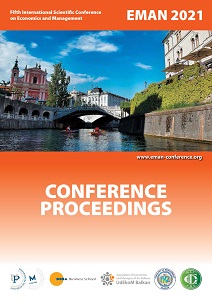Author(s): Svetlana Apenko,Mikhail Romanenko / Language(s): English
Publication Year: 0
Management of innovative projects of enterprises is carried out in conditions of high uncertainty and dynamism of environmental factors. Flexible management methodologies, which have been gaining popularity in recent years, are most suitable for such conditions. To ensure the flexibility of all project management, flexible teams are required, able to quickly adapt to changing situations and develop their competencies under new conditions. For flexible teams, new forms of leadership are particularly important, such as transformational, shared, team-based, and inspirational. However, there is a scientific and practical problem, which is the lack of scientifically based technologies of these forms of leadership and evidence of their impact on the quality of project activities. The purpose of the proposed study: to analyze the state and potential for the introduction of new forms of leadership in flexible teams, to show the relationship between the forms of leadership and the success of innovative projects of enterprises. The study was conducted using sociological and statistical methods, in particular, using a questionnaire and establishing the influence of leadership forms on the success indicators of the project. At the same time, the forms of leadership are studied as a set of different leadership competencies of project managers and project team members. Leadership competencies include: the ability to generate ideas and convince others of their usefulness, skills of involvement in teamwork, motivation to emotionally influence team members, and other competencies. The study proved that modern forms of leadership determine the success of innovative projects. They affect such indicators as effective use of project resources, the satisfaction of different groups of stakeholders, team development, achievement of project goals, and others. This conclusion, as well as the research methodology, can be attributed to the provisions that have scientific novelty and develop project management. The materials are of interest to researchers and specialists who study and develop issues of project team management in practice.
More...

